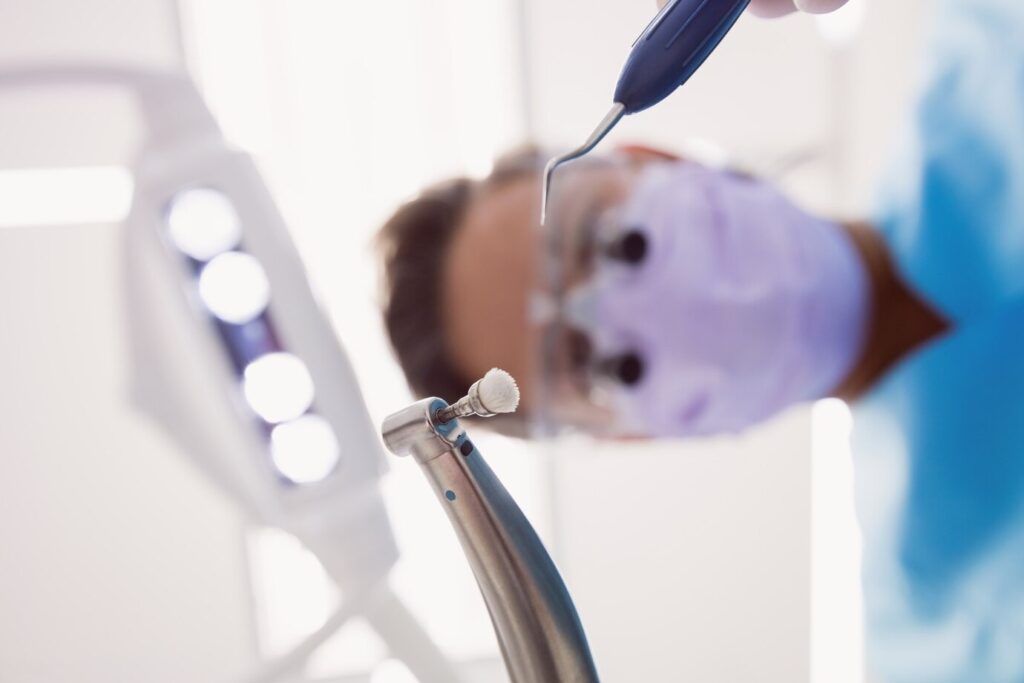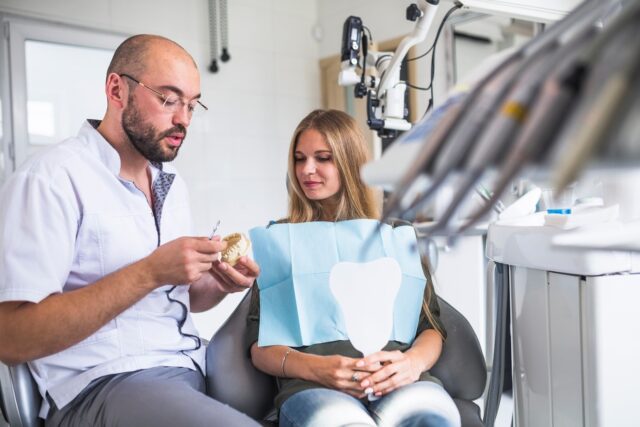Getting dental implants can be a game-changer for anyone missing teeth, giving you back your smile with strong, lifelike replacements. But, like with any surgery, you might feel some ouchies or discomfort while you’re healing.
It’s super important to handle this discomfort well not just to feel better, but also to make sure you heal up quickly and without any hitches. Let’s dive into some easy-to-follow tips to keep pain at bay after getting dental implants.
Getting to Know the Discomfort
First off, let’s get why you might feel sore. After your dental implants surgery, it’s totally normal to have a bit of pain, puffiness, and maybe some bruising where the implant went in. This soreness usually comes from the gum and bone being worked on during surgery and is most noticeable in the first few days.
How much it hurts and for how long can really vary from person to person, depending on things like how complex your surgery was, how many implants you got, and your overall health and how you usually handle pain. Understanding that a little pain is part of the healing journey helps set the right expectations for getting better.
Care Right After Surgery

Right after your surgery, the goal is to keep the initial pain and swelling down. You might be told to use ice packs on your cheek near where the implant is to help with swelling, which also helps with the pain. Keeping your head a bit raised, even when sleeping, can help reduce swelling and discomfort in those first days.
Resting is key too. Your body needs energy to heal properly, so taking it easy and not rushing back into heavy activities is crucial to avoid more pain and slow healing.
Handling Pain with Medication
Managing pain usually involves some common painkillers you can get without a prescription, and sometimes, your dentist might give you something stronger for more severe pain.
It’s super important to follow your dentist’s advice on how and when to take these meds. Taking them before the numbing from the surgery wears off can help keep the pain under control.
Keeping Your Mouth Clean
Good mouth hygiene is super important to avoid infections that can make the pain worse. You’ll likely be told to gently rinse your mouth with warm salt water a few times a day starting 24 hours after the surgery. This helps calm the implant area and helps with healing.
Be gentle around the implant when brushing your teeth and try using a soft-bristled toothbrush. Your dentist will show you the best way to clean your mouth without bothering the healing area.
Eating Right

What you eat can also help with managing pain and healing up. In the first few days, stick to soft, healthy foods that don’t need much chewing, like soups, smoothies, and yogurt. Cold treats like ice cream can be soothing too.
Drinking plenty of water is important, but skip the straw since the sucking action can mess with the healing. Eating foods that are good for you helps your immune system do its job and heal the tissues faster, which can also help with the pain.
Keeping Calm
Feeling stressed or anxious can make pain feel worse and slow down healing. Trying out relaxation stuff like deep breathing, meditation, or some easy yoga can help keep you calm and make the pain more bearable.
If you’re worried about pain after surgery, talk it over with your dentist before the procedure. Knowing what to expect and having a plan for dealing with pain can really help ease your mind.
Checking In with Your Dentist
It’s important to keep up with appointments with your dentist to check on how you’re healing and to catch any issues early that might make the pain worse. If your pain is getting bad or not getting better, it could mean there’s a problem like an infection or something not healing right. Getting help quickly can sort out these issues and handle the pain.
Other Ways to Ease Pain

If you’re looking for more ways to deal with pain or want to use less medication, you might think about trying things like acupuncture, laser therapy, or guided imagery. The science on how well these work for dental surgery recovery can vary, but some people find they help a lot.
Always chat with your dentist before trying new pain management stuff to make sure it’s safe and won’t mess with your healing.
Rest and Sleep are Key
Getting plenty of rest and good sleep is super important for healing after getting implants. When you sleep, your body does a bunch of repair work that’s essential for fixing tissues and keeping your immune system in top shape. Make sure you’re sleeping in a comfy position that doesn’t put pressure on where your surgery was.
Propping your head up with pillows can help with swelling and make sleeping more comfortable. Avoiding caffeine and having a relaxing bedtime routine can also improve your sleep quality, helping with pain management and speeding up healing.
Talking with Your Dental Team

Having a good line of communication with your dental care team is really important for dealing with pain after getting dental implants. Feel free to let your dentist or dental team know how you’re feeling, what your pain levels are like, and any symptoms you’re experiencing as you recover.
This two-way chat helps your dental care team customize your pain management plan to fit your needs, tweak treatments as necessary, and offer you support and advice. Being in the loop and supported by your dental team can do wonders in easing any nerves and making your recovery period much smoother.
Closing Thoughts
Managing pain smartly after dental implant surgery is key to a comfy healing period and the overall success of your implant. This whole approach includes knowing why you might feel pain after surgery, how to care for yourself immediately afterward, managing pain with medicines, keeping your mouth clean, eating right, staying chill, keeping up with dentist appointments, looking into other pain relief methods, and the massive importance of rest and sleep. Plus, always keep those lines of communication open with your dental care team.




